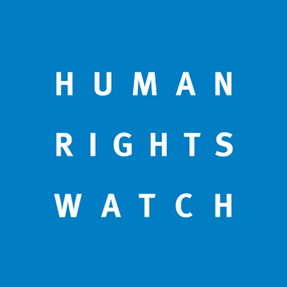2 Miscarriages From Lack of Hospital Access
Security forces for Iraq’s Kurdistan Regional Government (KRG) have arbitrarily imposed restrictions on movement for most residents of Makhmour refugee camp for Turkish Kurds since mid-July 2019, Human Rights Watch said today.
The restrictions came after unknown assailants suspected of belonging to the Kurdistan Workers’ Party (PKK), an armed group engaged in a decades-long conflict with Turkey, killed a Turkish diplomat in the nearby city of Erbil on July 17. KRG security forces, known as Asayish, arrested several suspects and imposed the restrictions, seemingly because of perceived PKK support among some residents. As a result, many camp residents have lost their jobs and had difficulties getting health care.
“Authorities can’t just punish everyone in a camp because some people may be sympathetic to the PKK when there’s no evidence they committed a crime,” said Sarah Leah Whitson, Middle East director at Human Rights Watch. “These arbitrary restrictions on camp residents are keeping them from reaching jobs and health care.”
The camp, 60 kilometers southwest of Erbil, is home to at least 12,000 ethnic Kurdish Turkish nationals. Most fled southeast Turkey from 1993 to 1994 when the Turkish military forcibly displaced hundreds of thousands of Kurds from their villages during the conflict with the PKK. In 2011, Iraqi authorities and UNHCR, the United Nations refugee agency, officially registered the site as a refugee camp and Iraqi authorities granted the residents refugee status.
Security forces for Iraq’s Kurdistan Regional Government (KRG) have arbitrarily imposed restrictions on movement for most residents of Makhmour refugee camp for Turkish Kurds since mid-July 2019, Human Rights Watch said today.
The restrictions came after unknown assailants suspected of belonging to the Kurdistan Workers’ Party (PKK), an armed group engaged in a decades-long conflict with Turkey, killed a Turkish diplomat in the nearby city of Erbil on July 17. KRG security forces, known as Asayish, arrested several suspects and imposed the restrictions, seemingly because of perceived PKK support among some residents. As a result, many camp residents have lost their jobs and had difficulties getting health care.
“Authorities can’t just punish everyone in a camp because some people may be sympathetic to the PKK when there’s no evidence they committed a crime,” said Sarah Leah Whitson, Middle East director at Human Rights Watch. “These arbitrary restrictions on camp residents are keeping them from reaching jobs and health care.”
The camp, 60 kilometers southwest of Erbil, is home to at least 12,000 ethnic Kurdish Turkish nationals. Most fled southeast Turkey from 1993 to 1994 when the Turkish military forcibly displaced hundreds of thousands of Kurds from their villages during the conflict with the PKK. In 2011, Iraqi authorities and UNHCR, the United Nations refugee agency, officially registered the site as a refugee camp and Iraqi authorities granted the residents refugee status.


 RSS Feed
RSS Feed